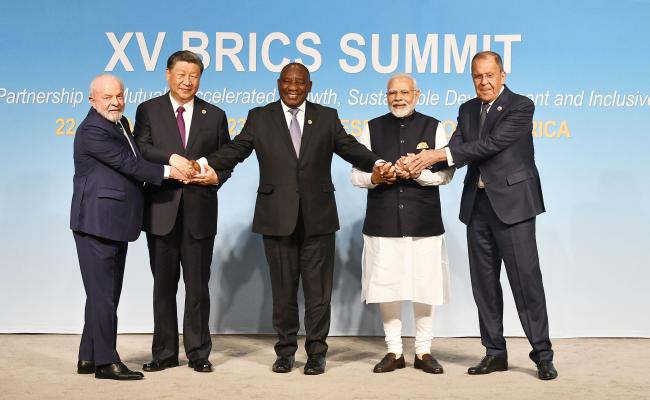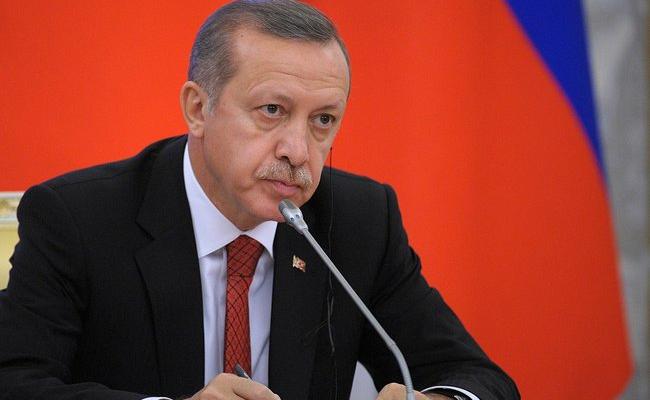Op-ed: Interpretation of the Svalbard Treaty in Turkey

The opinions expressed here belongs to the author and do not represent the views of High North News.
During the weekend, I encountered news regarding the Turkish Parliament's ratification of the Svalbard Treaty. I didn’t see many, though, only 2-3 of them. Subsequently, I checked the news and observed similar news coverage and content in the Turkish media, which had been a recurring trend since June 2022 when the Svalbard Treaty was first signed by President Erdogan.
It seems like there is a highly confusion regarding the Svalbard Treaty by Turkish authorities and/or the media, often referring to it as the “Arctic Treaty”.
The Arctic has often been portrayed as a desolate region, a perception underscored by a Turkish scholar in an interview with a mainstream newspaper who asserted “The warming weather, melting glaciers, and sea ice are deeply affecting all the inhabitants of the region, including the indigenous people and the true owners of the Arctic, such as polar bears”.
To address this confusion or created misperception, I reviewed news spanning from mainstream media to blogs and also examined scientific articles written in Turkish. It is worth noting that while the misinterpretation of the Svalbard Treaty by Turkey may hold lesser importance in comparison to the perspectives of Arctic nations, this is how we construct knowledge, step by step.
Turkey has a growing interest in Polar regions, primarily focused scientific research rather than political ambitions, and Ankara demonstrates this interest in the Arctic by being a party to the Svalbard Treaty; however, this engagement is partially influenced by some misinterpretations and confusions about the region.
Accession will in practice have very little significance for Turkish operations in Svalbard
Initially, this has to be clear in Turkey that Svalbard is neither La Isla Bonita nor No Man's Land. When Ankara became a party to it, Svalbard did not become an island where Turkish authorities could announce paradise to their citizens, subsequently leveraging it for economic gain. The source of misinterpretation originates from this premise.
Actually, Norwegian Foreign Minister, Anniken Huitfeldt, stated, regarding the Turkish accession to the treaty, “Any accession will in practice have very little significance for Turkish operations in Svalbard. Traditionally, Norwegian regulations on Svalbard do not distinguish between citizens of the treaty states and other states”.
There is a prevalent discourse that Turkish companies possess carte blanche to explore hydrocarbon resources. In one of news related to Svalbard, hydrocarbon reserves are referred as:
“The Arctic Ocean contains one third of global hydrocarbon reserves and the treaty gives all parties equal rights, not only in the archipelago but surrounding seas.”
This mistaken impression is probably based on the provision of commercial opportunities and the equal distribution of resources mentioned in Article 7 of the Treaty that indicates “enjoyment and exercise of the right of ownership of property, including mineral rights, in the territories specified in Article 1, Norway undertakes to grant to all nationals of the High Contracting Parties treatment based on complete equality and in conformity with the stipulations of the present Treaty”.
Also read
Another significant area of confusion lies in the realm of fishing. There is a confusion that any Turkish fisherman or company can freely travel to Svalbard and engage in fishing activities at their own convenience.
This, I believe, arises from Article 2 of the Treaty indicating “High Contracting Parties shall enjoy equally the rights of fishing and hunting in the territories specified in Article 1 and in their territorial waters”.
However the Article continues as “Norway shall be free to maintain, take or decree suitable measures to ensure the preservation and, if necessary, the reconstitution of the fauna and flora of the said regions, and their territorial waters; it being clearly understood that these measures shall always be applicable equally to the nationals of all the High Contracting Parties without any exemption, privilege or favour whatsoever, direct or indirect to the advantage of any one of them”.
As indicated in this Article, the contracting party does not have unrestricted freedom to conduct fishing activities as they desire.
The last point pertains to scientific research and student education in Svalbard, with particular emphasis on research institutes, which is of particular interest. On the contrary to Antarctica where Turkish scientists conduct significant research, the conditions to have a national research station is different in Svalbard.
"We proudly raised the Turkish flag in Svalbard"
The Treaty does not regulate the scientific research on Svalbard, Norway is not legally obligated to facilitate international scientific research infrastructure in Svalbard; however, it does so to promote scientific research. A place as a research centre could be rented in Ny-Ålesund through the Norwegian Polar Institute.
It is crucial to underscore that arrangements for scientists and research institutes are sometimes misconstrued as a form of national posturing, such as "We proudly raised the Turkish flag in Svalbard". When it comes to Svalbard or the Arctic, we often encounter the portrayal of a "showing the flag" instant.
Pederson, in his article, also gives the example of the high school experiment of Turkish students in Svalbard that was presented to the public as “the first and only station in the North Pole where the Turkish flag is flown”. This narrative seems to be connected to the confusion of a political vacuum in the Arctic governance.
When looking at the scientific articles written about Svalbard, some points out the delay in Turkey's membership to Svalbard. Additionally, there are views suggesting that there is a real potential for direct and immediate economic contributions from the Arctic to Turkey.
On the other hand, the Turkey Polar Research Institute refers to the New Silk Road when it comes to the Arctic, aligning with China's approach. There is still the perception of a melting Arctic while the World is watching, and one should be there for economic gains. Øystein Jensen emphasized that Svalbard is an open treaty, you sign it and you are part of it.
Also read
Minister of Industry and Technology, Mehmet Fatih Kacır, recently indicated:
“We will also have the right to conduct research and have a word to say in such a strategic geography”.
This might be one of the reasons for Ankara’s confusion as being member to Svalbard Treaty with being a host in Svalbard.
Turkey applied for observer status in the Arctic Council in 2015, which was rejected. Since 2022, Ankara has been pressuring NATO regarding the memberships of Finland and Sweden, with Sweden's membership still pending parliamentary approval. It is possible that the issue of Turkish penetration in the Arctic could come to the forefront thanks to a partnership with Russia.
Indeed, some Turkish companies have started collaborating in the Russian Arctic and there are plans to conduct a common scientific research with Russian scientists in Barentsburg.
This membership also affirms Turkey's desire to be everywhere, possibly stemming from Trotskyist entryism without, of course, being aware of it. However, since the 1990s, Turkey has been pursuing the art of grand écart politics, - often described as doing a split. Currently, it is playing a dual role in the Russia-Ukraine conflict, as well as in the Israel-Palestine issue.
A possibility that this misperception has been deliberately cultivated for specific domestic purposes.
As the second-largest military within NATO, Turkey maintains a significant partnership with Russia. Even when bombing Northern Syria, it maintained a stance of waiting in the wings until the right moment, such as when a drone was shot down by the Americans.
Furthermore, Turkey is a maritime nation, encompassed by seas on three coasts.
It shares the Black Sea with Russia to the north-east, contends with a long-standing continental shelf dispute with Greece in the Aegean to the west, and grapples with perennial issues in the Mediterranean, including the Cyprus conflict and escalating maritime disputes regarding oil drilling issues.
Turkey's accession to the Svalbard Treaty is framed in a scientific report as a move signalling a shift as “From the blue homeland to the open seas”.
This dual approach does not reflect the behaviour of a great power or regional power, but rather a statecraft and diplomatic strategy that lurks in the background and emerges onto the global stage when strategically advantageous. The Svalbard Treaty is one of these instances.
In Turkey, where domestic politics often drive foreign policy, the promises made domestically are much more important than how they will be perceived abroad and whether they are realistic. Consequently, there is a possibility that this misperception has been deliberately cultivated for specific domestic purposes.
While Turkish membership application to the Treaty will be on its way to Paris, I would have liked to engage in a discussion on the Svalbard policy with a decision maker from Ankara, but it seems that even the Storting encounters probably challenges in obtaining clear answers to their inquiries on this matter.





